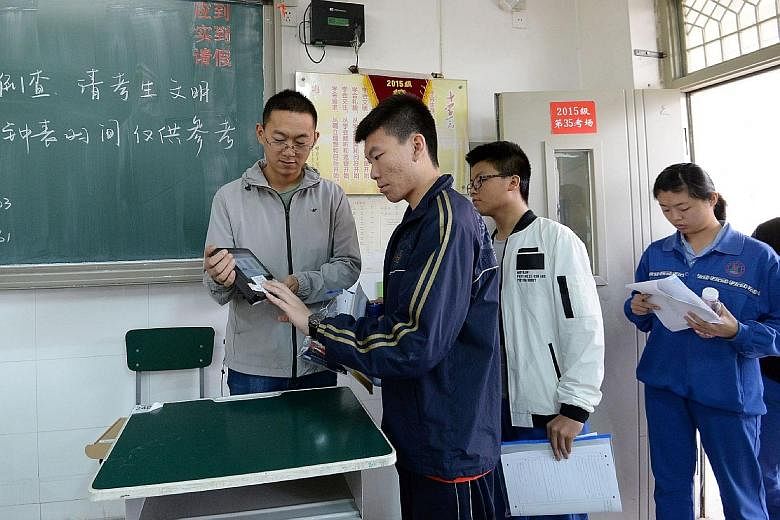Not all 18-year-olds in China taking the college entrance examination this year will be equally stressed.
Those in Shanghai and neighbouring Zhejiang province have already finished half of their gaokao, as the exam is commonly known, before it officially starts today.
They will take only the exams for their compulsory subjects - Chinese, maths and English - while their peers will have to take another test for their elective science or arts subjects. By early last month, these students were already done with tests for the three elective subjects.
It is one of the key changes in the pilot gaokao reform, which may be rolled out to the rest of China in the next few years.
Each year, about nine million students take the gaokao, a one-shot exam for them to enter university.
While it is seen as a social leveller for those from poorer backgrounds, it has been criticised for its rigidity, as it places great emphasis on scores and separates students into the science or arts stream.
As part of the reform, the graduating batch of high school students in the affluent eastern region could opt to take parts of their gaokao in separate sittings over a two-year period instead of having to sit the entire gaokao over two to three days at the end of their third year.
They are free to choose the three electives from a list of seven subjects - physics, chemistry, biology, technology, politics, history and geography - without having to be confined to either the science or arts stream. They can also attempt exams for the electives as well as English twice.
The exams for the elective subjects are held twice a year, in April and October, starting from their second year in high school.
The reform is meant to offer students more chances to succeed and most educators see it as a major improvement in the gaokao system.
"It encourages students to gain exposure to knowledge in different fields, which benefits their well-rounded development," English teacher Wang Yunfan told China Daily.
Performance at school and participation in extra-curricular activities will also be included for reference in this new move.
But not all parents and students relish the change.
Some complained that with the gaokao starting in the second year, students are now being put through prolonged stress and agony.
"Over the past three years, we have felt very confused and uncertain about the future," Ms Zhang Lijuan, the mother of a senior high school student, told Chinese news website Sixth Tone.
Seeing that her daughter has refused to settle for mediocre scores, the primary school teacher in Hangzhou said: "I would rather have my daughter take the gaokao once and only once."

